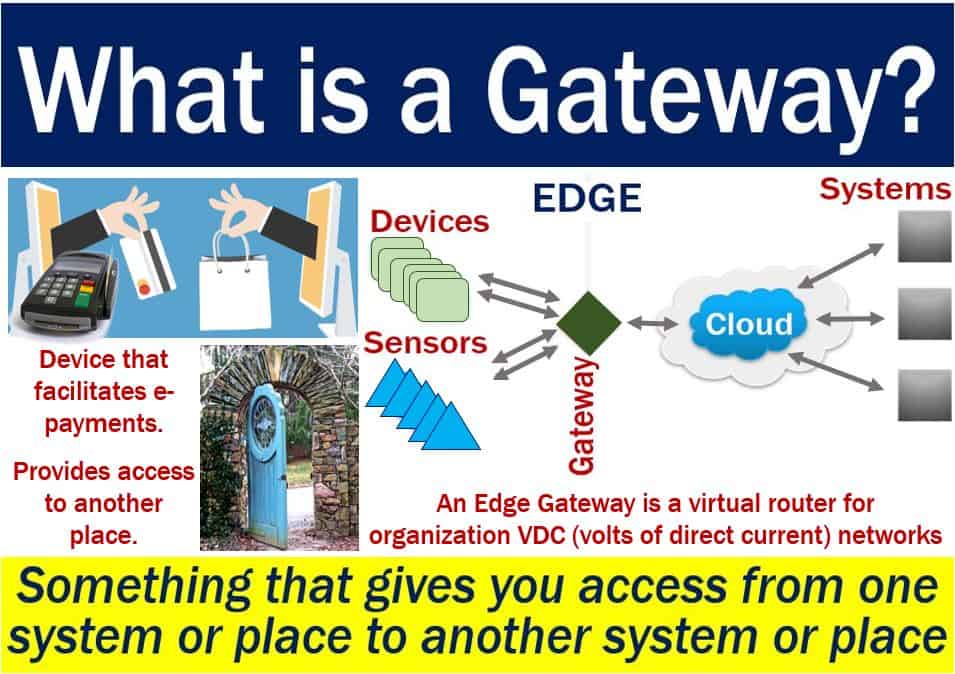The term gateway has many different meanings, depending on whether you are talking in a business, IT, or other context. ‘IT‘ stands for Information Technology. Gateways, in information technology, are hardware devices or software that connect to different computer networks. Also in IT, gateways could be computers systems on Earth that switch voice and data signals between terrestrial networks and satellites.
The term may refer to any point or passage through which people may enter a region. For example, “New York is the gateway to America.” In architecture, gateways are passages or entrances that people enter by opening a gate.
Doorways surround doors. Likewise, gateways surround gates.
Gateways are also mechanisms or agencies that provide access to information, systems, or other agencies.
When we say “Hard work and dedication are the gateways to success,” the term means ‘ways of achieving something.”
If I say “My local bank is my gateway to a wide range of financial services,” what does the term mean? It means something within a system that allows me to use other parts of it.

A gateway – telecommunications
Gateways, in telecommunications, are pieces of networking hardware that interface with other networks. Specifically, they interface with other networks that use different protocols.
Telecommunications or telecom means communicating over long distances; usually using hi-tech equipment.
Gateways may contain rate converters, fault isolators, signal translators, impedance matching devices, or protocol translators. The devices provide what is necessary for system interoperability.
Protocol translation/mapping gateways allow different networks to communicate. They perform the necessary protocol conversions. Hence, we also call them protocol converters.
Their activities are more complex than those of switches or routers because they communicate using two or more protocols.
B2B Gateways integrate data from back-end systems. They enable information exchange across trading entities or partners. B2B stands for business-to-business, i.e., companies doing business with other companies rather than individual consumers.
Payment gateway
Payment gateways provide means of authorizing electronic payments. The payer either performs these e-payments online or offline.
Payment gateways claim to protect sensitive personal data such as credit card and pin numbers. In other words, they protect the data when they transmit to payment processors and merchants.
When you pay for something in a shop using your credit card, you place your card in or on a device. We call these devices payment gateways.
